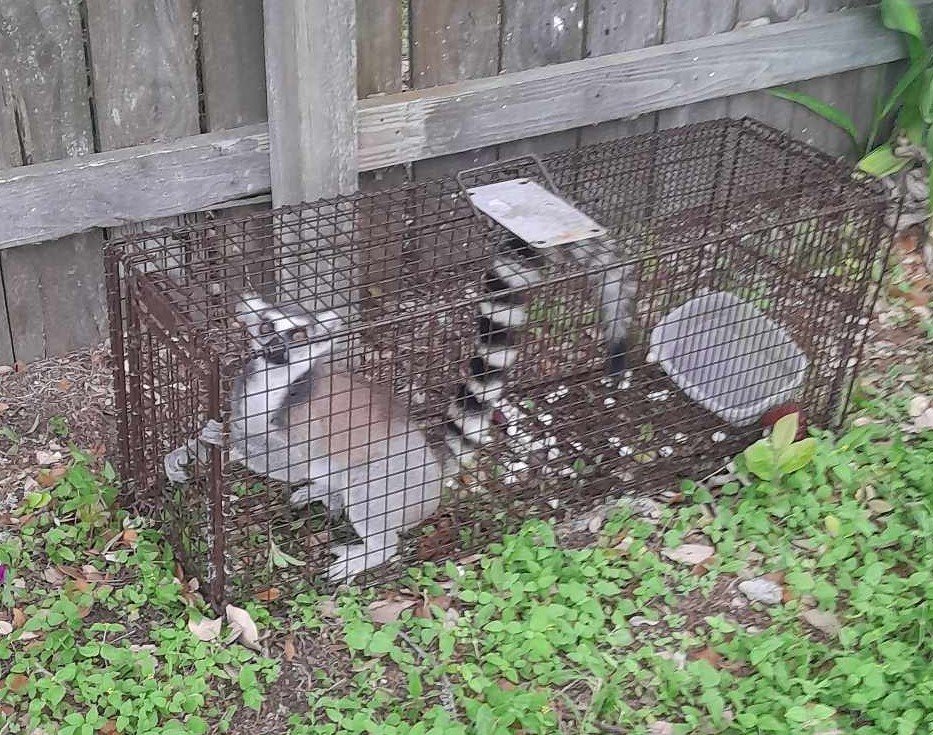Escaped Lemur Will be Surrendered to Ringtail Ranch in Lubbock
By Elyssa Foshee Sanders, Ringtail Ranch Lemur Rescue
ARANSAS PASS, TEXAS (News Release) - Ringtail Ranch Lemur Rescue, a non-profit lemur sanctuary in Lubbock, TX, is preparing to receive its fifty-third lemur next week. King Julian, as he’s been dubbed by Aransas Pass locals, will not be the first lemur to come to Ringtail Ranch from South Texas, and his story has begun to attract national attention.
On April 1, Spencer Bell of Aransas Pass discovered two ring-tailed lemurs aboard his boat. He took to Facebook, where his claims were initially met with skepticism since it was April Fool’s Day.
Hoping to keep the lemurs nearby until the owner was discovered, Bell and his neighbors began leaving food out for the primates, who achieved local celebrity status by making surprise appearances across town.
“They stayed there between my house and my neighbor’s house until we had that little storm last week, and that’s when they decided they didn’t want to be in my neighborhood anymore, and that’s when they started getting all over town,” Bell said.
Despite community efforts to care for the skittish primates from afar, one of the lemurs’ bodies was allegedly discovered in a shallow body of water last week, where he’s speculated to have drowned.
After evading capture for almost three weeks, the remaining lemur was caught in a live trap by Bell on April 17 and placed into the custody of Aransas Pass Animal Control.
“He is secured in a double enclosure to prevent any mishaps or escape,” an animal control officer said. “We are currently speaking with The Texas Zoo in Victoria for them to hold him for us for ten days because he is allegedly somebody’s pet. As per our policy, we’re required to give them ten days to step forward and claim him.”
According to authorities, keeping a pet lemur in the city limits is a Class C misdemeanor punishable by a $500 fine. If no one claims him, the lemur will be surrendered to Ringtail Ranch Lemur Rescue, which serves as a refuge for dangerous and unmanageable captive-bred lemurs.
“When lemurs are taken from their parents and raised by humans, they become very aggressive,” said Jeanna Treider, founder and president of Ringtail Ranch. “Lemurs are the most endangered mammals in the world and weren’t designed for captivity.”
Native only to Madagascar, wild lemurs’ numbers are rapidly dwindling due to deforestation; nevertheless, it’s not uncommon to find these endangered primates for sale in pet stores. According to Treider, there are likely more lemurs in captivity in Texas than there are in the wild.
“Because of their unique requirements and behavioral issues, they can’t be rehabilitated and rehomed,” said Treider. “They have the emotional needs and intelligence of a human toddler. When we take in a lemur, we’re committing to caring for it for the rest of its life, which can be thirty years or more.”
Accepting new surrenders is a costly endeavor for the sanctuary. At a minimum, new lemurs require new enclosures where they can be safely quarantined; they need to be examined by a veterinarian and, in most cases, they need to be spayed or neutered. Many arrive with serious health issues and require expensive medical procedures on top of that.
Treider estimates that the intake process for a single healthy lemur costs the sanctuary $1200 to $1500.
“Donations mean so much,” Treider said. “Every dollar counts. It sounds absurd, but the U.S. genuinely has a huge, out-of-control lemur problem. You wouldn’t believe how many reports we get of lemurs on the loose somewhere in Texas, or Oklahoma, or Ohio. Whether they escaped or were released, it’s our responsibility to ensure these endangered primates get proper care so they don’t starve, die from exposure, or attack someone.
“My favorite quote is, ‘You’re forever responsible for what you’ve tamed.’”
You can support Ringtail Ranch by scheduling a wildlife encounter, making a tax-deductible donation at ringtailranch.com, or helping with vet bills at Live Oak South. Ringtail Ranch is a USDA-certified 501(c)(3) non-profit rescue facility and all proceeds directly fund the lemurs’ care.




